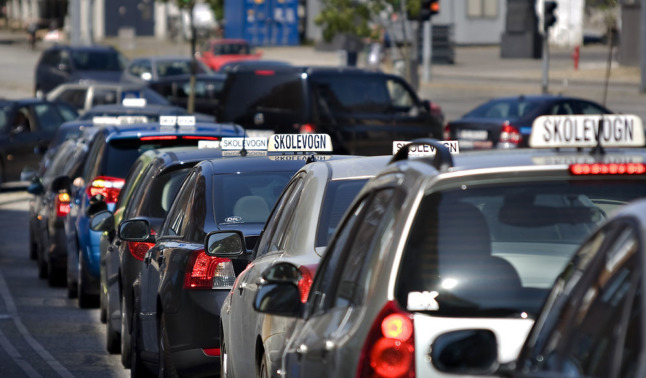This article is available to Members of The Local. Read more Membership Exclusives here.
This in itself is not a new realization for me. Before moving to Sweden, my husband and I lived and travelled in different parts of the world – both separately and as a couple. We have lived together in one another's native countries for extended periods. We both know what it's like to be immigrants.
We have also recognized that our particular situation means that no matter where in the world we choose to live, at least one of us will be an immigrant. With ample personal experience of what it means to be an immigrant – good, bad and indifferent – we have done our best to embrace our situation and make it an asset. Most significantly, we have made it an enabler of self-determination that allows us to choose where we can live our best life.
For a variety of reasons, Sweden was the place we chose, and I don't regret it for a moment, even as a I struggle at times to adapt and integrate. In a dozen or more ways, we are privileged. We live in what I believe is one of the most progressive countries in the world; a perception supported by Sweden's consistently high place in rankings of the world's best countries.
And yet, though it's also been named the best country in the world for immigrants, I am still acutely aware at times that my husband and I will probably always be viewed as “immigrants” in Sweden, even if we live here for the rest of our lives. Even, quite possibly, if we become citizens one day.
No matter how good our Swedish may become, we will still speak with noticeable foreign accents. Our misunderstanding of or inability to conform with some cultural norms may make certain social and professional relations challenging. Our professional and academic credentials and accomplishments in and from other parts of the world may always be accepted or acknowledged with reluctance. A variety of modern studies, not to mention history, bear this out.
Like most first-generation immigrants around the world, we may spend the rest of our lives in Sweden struggling to realize our full potential – both as individuals and as contributors to Swedish society.
On the other hand, the same evidence demonstrates that our children will be far less likely to experience these challenges. As second-generation immigrants, they will have access to the best of Sweden in a way we may never have ourselves.
As a parent, I celebrate this for my children's sake. Like most parents, I want my children to have the advantages and opportunities to do and be better than my husband and I in every way. This desire was one of the main reasons we chose to live in Sweden to begin with.
At the same time, I don't accept that the right to a full and productive role in society should be held in reserve.
As much as we hear about how globalization brings us closer together, my experiences as an immigrant, as well as the wife and mother of immigrants, have demonstrated to me just how superficial this transformation really is. While many people might welcome other people and cultures at arm's length via social media or under specific conditions like a holiday abroad, they may still be wholly unwilling to embrace or even accept them personally, professionally, or politically on their own turf.
The reality is that until the majority of people and policies embrace rather than mistrust different voices, backgrounds and experiences, life is always going to be “easier” for those who blend seamlessly into a society than for those who don't. Sweden, as good as it is, is no exception.
And while I don't particularly like that I will always be proverbially swimming upstream in Sweden, I recognize that the effort I put into my life here is unlikely to be substantially more than I would have put into it almost anywhere else. We have had the incredible privilege to choose where we commit this effort, and I don't regret our choice.
In fact, when I put aside my frustration and consider the reasons we came here to begin with, I believe – like many immigrants before me – that any “sacrifices” I have to make are worth it in the long run. Not least for the sake of our children and their future.
Victoria Martínez is an American historical researcher, writer and author of three historical non-fiction books. She lives in Småland county, Sweden, with her Spanish husband and their two children.
Read more from her family and history column on The Local here.



 Please whitelist us to continue reading.
Please whitelist us to continue reading.
I think that is often the way. My grandparents migrated from Sweden to the USA. My grandmother worked as a maid and my grandfather as a carpenter. They made enough to put my dad thru college and he got a degree in pharmacy. My brothers and I all have graduate degrees. My immigrant grandparents were definitely not rich, but their children and grandchildren were much better off because they took the risk to leave.